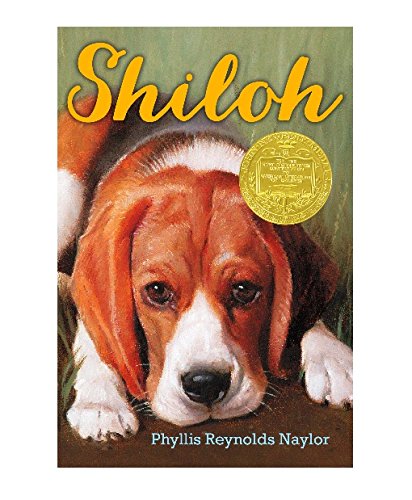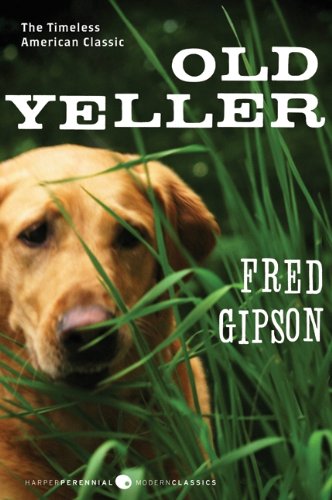Does the Dog Die? (The Saddest of Sad Dog Stories!)
“Miss Wanda,” I stage-whispered to the children’s librarian across from me, “I need to know. Does the dog die?“

I was holding an audio copy of Shiloh, and I needed to be prepared before listening with my 2nd and 3rd grade children. After all, I’d grown up on Old Yeller, Where the Red Fern Grows, and a host of other sad dog stories. I knew that doggie death was a very real possibility in children’s literature.
“I don’t know, but I know how we can find out!” Like all librarians worth their salt, Miss Wanda knew exactly how to help me. Together, we looked at a new-to-me-website: Does the Dog Die? (Sadly, this website no longer exists! It told not only whether the dog died in books or movies, but the extent to which the dog suffered harm).
Why Read Sad Dog Stories?
If there’s an entire website dedicated to the question, “Does the dog die?” one might question why we have this many sad dog stories! I mean, why can’t they all be like Beethoven with happy endings? And not outright tear jerkers like Marley and Me or the aforementioned Old Yeller?
I’ll tell you why: Reality + Virtual Reality.
Reality Bites
In the case of dogs, sometimes reality literally bites. Tongue-in-cheek humor aside, it’s true that many people are pet owners who are deeply attached to their animal companions. The Lord designed us to want to care for his creation, and sometimes that takes the form of bringing a particular animal into our “family” to care for in a special way. And nearly every species we own as pets will not outlive their human counterparts.
Dogs die. Cats die. Lizards, goldfish, birds—all die. And even though I know this cold, hard truth as an adult, I can tell you that I’ve ugly cried at all my pets’ demise, even as a “mature” adult who knew that putting down my dog when she had cancer was clearly in my pet’s best interest; it’s a privilege I had as her caretaker to alleviate her suffering. But it hurts!
Books Provide Great Virtual Reality

Reading a book like Shiloh offers much discussion fodder over the mistreatment of animals, lying and its consequences, and the harsh reality we must sometimes face. Reading Rascal helps us discuss with our children that God made many marvelous animals with unique abilities; sometimes, those animals are better left in the very environments the Lord made for them rather than caged up in our house. And reading books like Old Yeller help us, with tears, to remind our children that people are more important.
When animals are a threat to people, we must sometimes make hard decisions. When animals are sick beyond our capacity to make them better, we have the right and privilege to put them out of their suffering, even though it grieves us. Animals do not have souls and their suffering will not benefit them spiritually in the way our own suffering might benefit us. Thus, we sometimes must make excruciating decisions that really are in the animal’s best interest. And reading books that show these issues ahead of time, when our emotions aren’t already involved, can be a great way to help our children experience that pain vicariously and be better equipped when the time comes.
Finally, experiencing grief over an animal’s death in a book helps children “try on” significant emotions before they experience in real life, even if their first experience in real life is over a person’s death or other tragedy. Books are great ways to help us grapple with big emotions in baby steps.
But be sure to have a box of tissues on hand for when the time comes!
Stay Up to Date!
Get the information you need to make wise choices about books for your children and teens.
Our weekly newsletter includes our latest reviews, related links from around the web, a featured book list, book trivia, and more. We never sell your information. You may unsubscribe at any time.
Support our writers and help keep Redeemed Reader ad-free by joining the Redeemed Reader Fellowship.
Stay Up to Date!
Get the information you need to make wise choices about books for your children and teens.
Our weekly newsletter includes our latest reviews, related links from around the web, a featured book list, book trivia, and more. We never sell your information. You may unsubscribe at any time.
We'd love to hear from you!
Our comments are now limited to our members (both Silver and Golden Key). Members, you just need to log in with your normal log-in credentials!
Not a member yet? You can join the Silver Key ($2.99/month) for a free 2-week trial. Cancel at any time. Find out more about membership here.
1 Comments
Leave a Comment
You must be logged in to post a comment.




I love this post and am remembering the first time I read Where the Red Fern Grows. I was torn apart! But it’s a beautiful story, and I still reread it occasionally. (And Old Yeller, too, although I remember enjoying the movie more for some reason. That’s very rare.) I love Charlotte’s Web, too.
I just read a wonderful animal story called The Ark, the Reed, and the Fire Cloud, by Jenny L. Cote. It’s a profound story of Noah’s ark from the animals’ perspectives; one I could not put down. I really think you would like it, but I cannot tell you if the dog dies. That’s a major spoiler! Ha!
God bless you.